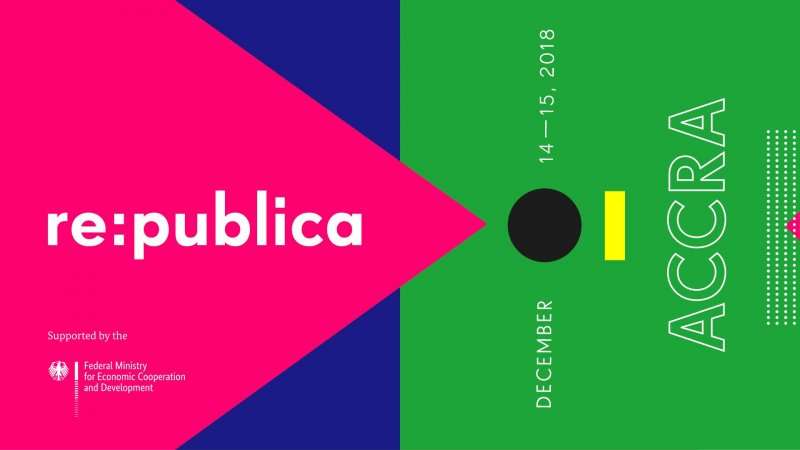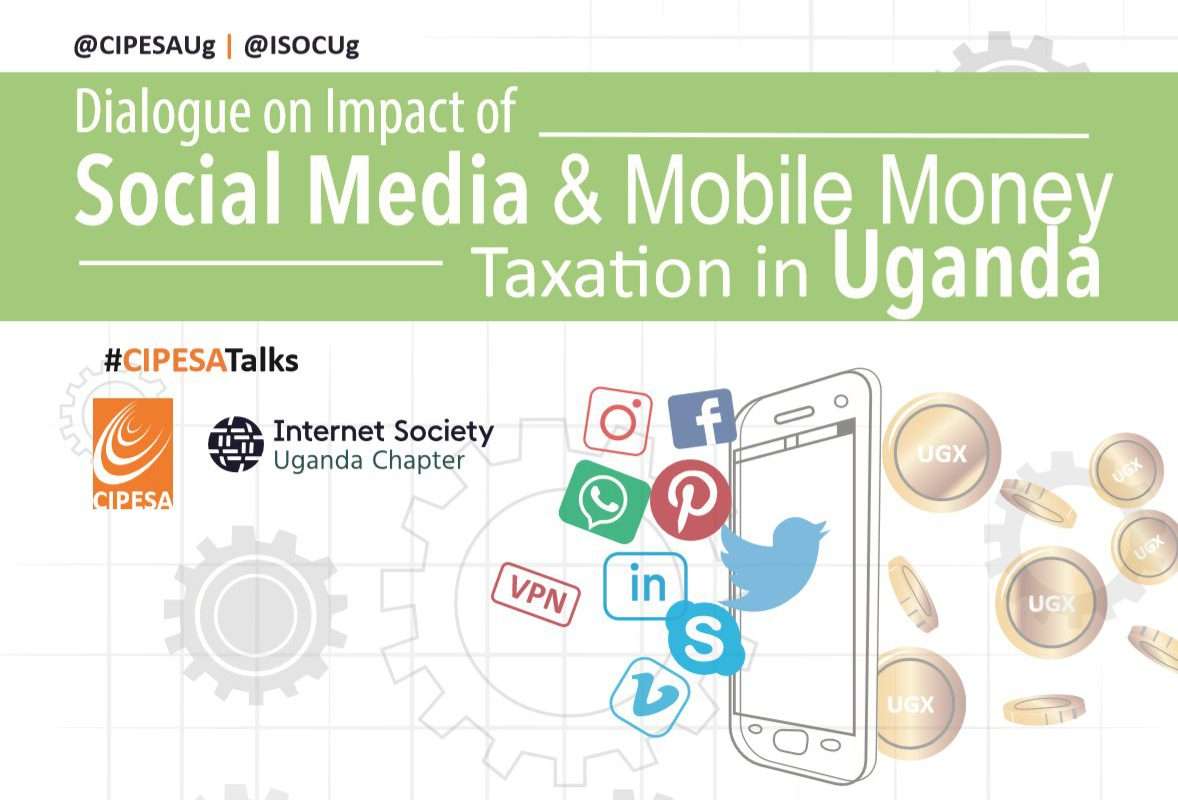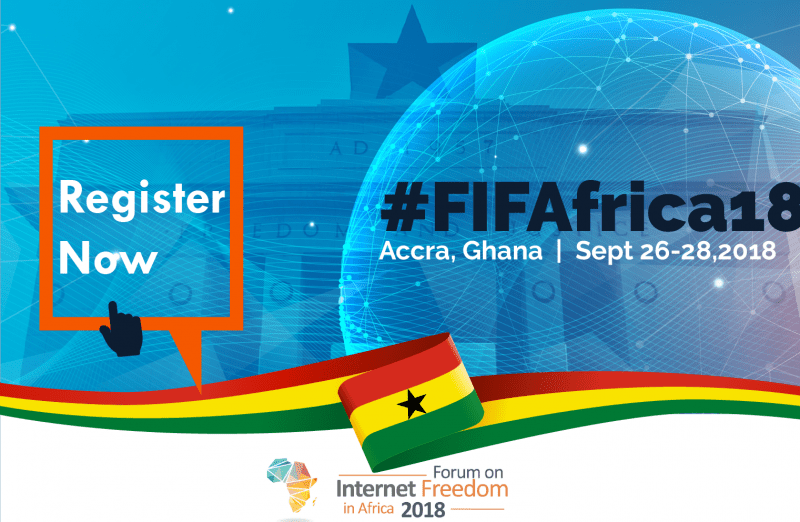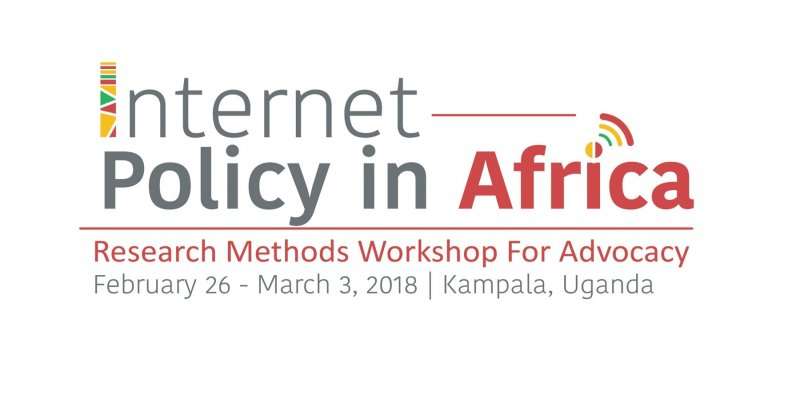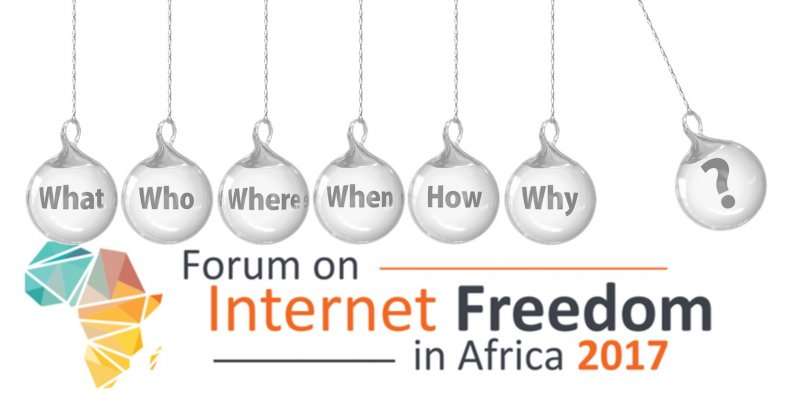By Simone Toussi |
The first African edition of Europe’s largest internet and digital society festival – re:publica – was held in Accra, Ghana, December 14-15, 2018 and drew in hundreds of participants to showcase and discuss how politics, the arts, innovation, and digital rights have been affected by an increasingly digitised society.
Co-organised by Impact Hub Accra, the German Federal Ministry for Economic Cooperation and Development (BMZ), and with the support of several partners including the Collaboration on International ICT Policy for East and Southern Africa (CIPESA), re:publica Accra aimed to strengthen Afro-German dialogue about digital issues, and to explore the intersection between digitalisation and collaborative developmental efforts.
With support from BMZ and the German Society for International Cooperation agency (GIZ), CIPESA hosted a Digital Rights Lounge throughout the duration of re:publica, organised workshops on civic participation and online content regulation, and also participated in sessions on the work of investigative journalists and activists, among others.
The Digital Rights Lounge
To reflect its multi-disciplinary nature, re:publica Accra featured four lounges on health, digital creation, digital rights, and hardware innovation. The CIPESA hosted Digital Rights Lounge featured organisations sharing experiences and showcasing work related to advancing digital rights in Africa.
The lounge featured an exhibition on the state of digital rights in Africa including visuals on press freedom, the gender dynamics of internet usage, access to information, data protection and privacy, affordability, non-discrimination, and network disruptions. This was complemented by research publications and videos on the ongoing efforts to engender progressive internet policies and practices that support human rights, innovation, and development.
Also presented at re:publica were key action areas that emerged from the 2018 Forum on Internet Freedom in Africa (FIFAfrica), which was held in Accra, Ghana, at the end of September 2018. Since 2014, CIPESA has held this annual forum that brings together various stakeholders to deliberate on gaps, concerns and opportunities for advancing privacy, free expression, non-discrimination and the free flow of information online on the continent. Previous FIFAfrica editions have been held in Uganda (2014-2016) and South Africa (2017).
Sessions held around the lounge included conversations on involving more girls in tech, privacy challenges, regulating emerging technologies, hands-on skills session on steganography, and online content creation. There was also a session on the work of the Freedom Online Coalition (FOC), which groups 30 governments who have committed to work together to advance human rights and fundamental freedoms online.
Advancing Civic Participation through Digital Technologies
Re:publica served as a platform to also share insights on the role of technology in social accountability, civic engagement, transparency and accountability, during a session titled ‘Advancing Civic Participation through Digital Technologies’. The session explored the opportunities and gaps in responsive solutions/platforms for civic participation and for transparency and accountability. Panellists presented cases studies on technology in governance including political mobilisation through print, broadcast and online media in Kenya; public finance tracking in Nigeria; parliamentary monitoring in Ghana; creating an enabling environment for civic technology in post-conflict Somalia; and service delivery monitoring and human rights reporting through ICT in East Africa.
The session also interrogated how the legislative landscape affects access and infrastructure, cybercrime, and access to information; and how, content regulation and taxation in the respective countries weaken the potential of technology-based initiatives to advance democratisation.
Impact of Online Content Regulation on Digital Rights in Africa
 In this session, panellists discussed the online content regulation landscape in Africa with a focus on countries such as Tanzania, Uganda, DR Congo, Burundi and Zambia which in 2018 proposed or passed laws and regulations that undermine freedom of expression and access to information online.
In this session, panellists discussed the online content regulation landscape in Africa with a focus on countries such as Tanzania, Uganda, DR Congo, Burundi and Zambia which in 2018 proposed or passed laws and regulations that undermine freedom of expression and access to information online.
These controls are undermining public confidence in the use of online platforms, and could lead to self-censorship and complete withdrawal from online discourse by ordinary citizens and by vocal bloggers and other social media enthusiasts. They are also leading to arrests of some journalists and social media users, including those that express legitimate.
The session comprised digital rights experts and researchers from Benin, Cameroon, Ghana, Tanzania, Uganda, Zambia and Zimbabwe who shared ideas on alternative approaches aimed at enhancing adoption and use of online platforms as well as content generation for advancing digital rights in Africa.
The panel noted that there was limited citizens’ consultations in coming up with the laws and regulations around internet control and online content regulation, and stressed the need for campaigns to have internet regulation that promotes individuals’ rights and livelihoods and not just the narrow interests of powerful actors such as governments and ruling party officials.
However, for such campaigns to work, it is crucial for civil society and other actors to conduct research to generate evidence to inform advocacy and decision-making; and to proactively offer alternative positions to governments rather than only offering criticism. In addition, the need to involve more actors in promoting digital rights – not least traditional human rights organisations, women’s rights organisations, and private sector actors – was emphasised. The need for digital security training and digital literary campaigns, and for increased use of tools of anonymisation and circumvention tools, was also emphasised.
The support of the German Federal Ministry of Economic Cooperation and Development and GIZ enabled CIPESA to support the participation at re:publica of 13 individuals from 10 African countries. The support also went towards the hosting of a Digital Rights Lounge throughout the duration of the event alongside organising workshops on civic participation and online content regulation, and participation in sessions on the work of investigative journalists and activists, among others.
Dialogue on Social Media and Mobile Money Taxation in Uganda
CIPESATalks |
The evolution of the digital economy in Uganda over the last 20 years has broken barriers associated to geography and time and thus enabled information flows critical for business processes, innovation, entrepreneurship, civic participation, learning and research, and government service delivery.
Following concerns on the growing public debt bill, and a constrained tax base, the Uganda government introduced a raft of taxes in the Excise Duty Act (Amended), notably on Over the Top (OTT) services and mobile money transactions. Beginning July 1, 2018, users must pay a tax of UGX 200 (USD 0.05) per day to access various social media platforms including Facebook, WhatsApp, Twitter and LinkedIn. For mobile money, a 1% levy applies to deposits and withdrawals, on top of a revised excise duty of 15% up from 10% on transfers. These taxes pose a huge threat on internet access and affordability, and financial inclusion for low income and marginalized groups such as women, youth and rural communities. In fact, the Alliance for Affordable Internet (A4AI) estimatesthat the social media tax will cost Uganda’s poorest up to 40% of their average monthly income to buy a basket of 1GB of data.
Accordingly, CIPESA in partnership with the Internet Society Uganda Chapter seeks to convene stakeholders to deliberate on the economic, social and human rights impact arising from the new taxes. The dialogue will deliberate on how policy making processes can advance inclusive and equitable access to the internet, promote innovation and consumer rights protection. The dialogue builds on previous ones convened by CIPESA, for multiple stakeholders in the ICT eco-system.
See full agenda here.
Register for the Forum on Internet Freedom in Africa 2018 (FIFAfrica18)
Register Now |
We are excited to open registration for the upcoming Forum on Internet Freedom in Africa 2018 (FIFAfrica18) set to take place on 26-28 September, 2018 in Accra, Ghana. The Forum is a landmark event that convenes various stakeholders from the internet governance and online rights arenas in Africa and beyond to deliberate on gaps, concerns and opportunities for advancing privacy, access to information, free expression, non-discrimination and the free flow of information online on the continent.
This year, the Collaboration on International ICT Policy in East and Southern Africa (CIPESA) hosts FIFAfrica18 in partnership with the Media Foundation West Africa (MFWA). It follows the the success of last years Forum co-hosted with the Association for Progressive Communications in Johannesburg, South Africa.
Indeed, spreading the physical footprint of FIFAfrica across different regions of the continent ensures that the Forum lives up to its goal of unpacking internet freedom challenges and opportunities in sub-regions of Africa and developing responses that are collaborative, and informed by insights from the experience of other sub-regions of the continent. Hosting the Forum in in west Africa for the first time will not only open up the space to more west African civil society, private sector and public sector actors to contribute their experiences to the regional discussion, but will also give life to the Forum’s commitment of ensuring broader regional representation and deepening conversations across the continent.
Register here – You can also make suggestions for session topics, panels, skills clinics, presentations or any additional activities that you’d like to see happen prior or alongside the Forum. Our vision is to have a Forum with representation from as many countries in Africa as possible. There is limited funding to support participation at FIFAfrica18. Please note that preference will be given to applicants who can partially support their attendance.

Share your thoughts on your vision for Internet Freedom in Africa using #InternetFreedomAfrica This year, the event hashtag is #FIFAfrica18

Advancing Internet Policy Research in Africa
By Juliet Nanfuka |
The conversation and actions on internet related policy in Africa have grown in recent years as has the appreciation of its impact on internet users. However, research to support advocacy for improved internet policy development on the continent remains relatively low despite a growing internet penetration and its resultant impact on the continent’s social, economic and political scenes. This has led to the need to train, connect, and build collaboration between researchers, policy makers and internet freedom advocates across the region.
Accordingly, between February 26 and March 3, 2018, an intensive African regional training on Internet policy research methods will be held in Kampala, Uganda. Hosted by the Annenberg School for Communication’s Internet Policy Observatory and the Collaboration on International ICT Policy for East (CIPESA), along with several partners from across Africa, the six-day program is aimed at building collaborative possibilities across sectors, expanding research capacity within the practitioner and digital rights advocacy communities, as well as providing the skills to strategically use research and data to advance advocacy efforts. Ultimately, it aims to improve working synergies between emerging African networks of civil society organisations, academic centres, technologists and think tanks.
We look forward to a week long exchange of insights & ideas at the #InternetPolicyAfrica workshop next week. Follow the hashtag from Feb 26 – Mar 3 to gain some tips on how to advance #Internetfreedom #Access #OpenData #FreedomOfExpression #InternetMeasurement & more in Africa! pic.twitter.com/FgQwZUg2jq
— CIPESA (@cipesaug) February 23, 2018
The workshop is designed as an intensive practicum, covering both quantitative and qualitative methods as well as offering case studies which illustrate how to strategically use research for advocacy and policymaking. It will also entail theoretical and practical sessions on a range of topics including legal analysis, survey methods, social network analysis, strategic communication, data visualisation, and network measurement.
Past workshops in the Middle East, Asia, and Latin America were successful in equipping a diverse group of participants with the skills needed to understand how to frame research questions, understand various qualitative and quantitative research methods, and collaborate across disciplinary and professional silos.
Following a public call for applications which was launched at the Forum on Internet Freedom Africa 2017, over 400 applications were received from across Africa. A total of 40 applicants – representing 17 countries – with diverse skills and professions including journalists, lawyers, researchers, technologists, academics and government representatives were successful. The represented countries include Burundi, the Democratic Republic of Congo, Gambia, Ghana, Ethiopia, Kenya, Liberia, Malawi, Namibia, Nigeria, Tanzania, Rwanda, South Africa, South Sudan, Uganda, Zambia, and Zimbabwe.
Among the participants is South Africa based Yolanda Mlonzi, co-founder of the Southern African Emerging Leaders in Internet Governance (SAELIG), who notes that, “We find ourselves in an exciting yet critical time, where we have the opportunity to set our own standards and shape internet policy for the better. The workshop presents a great opportunity for learning, to stretch my current positions on internet policy in Africa and most importantly, to start thinking of ways to contribute to quality research that seeks to advance the notion of understanding internet policy through the human and digital rights framework.”
Gambian Demba Kandeh, a journalism and digital media lecturer at the University of The Gambia, echoed Mlonzi’s sentiments on research-driven policy development, noting: “Making impact with research is key but often difficult … there is an opportunity for relevant stakeholders across the continent to seize the opportunity to advance well-researched policy options for the region.” Meanwhile, Namibian researcher and journalist, Frederico Links, pointed out the current gaps affecting strong policy formulation stating that, ”the African internet-related policy space is woefully underdeveloped and weak, and reflects both a severely limited state sector understanding of internet and technology related matters, as well as significant cross-sectoral capacity constraints.”
The workshop will include faculty from the Annenberg School for Communication – University of Pennsylvania, Alliance for Affordable Internet – World Wide Web Foundation, CIPESA, DefendDefenders, Department of Media Studies at University of Virginia, Human Rights Network for Journalists (Uganda), Internet Policy Observatory, Kenya ICT Action Network (KICTANet), Lynchburg College (USA), Makerere University College of Computing and Information Sciences (Uganda), Medic Mobile, Media Legal Defence Initiative (MLDI), Open Observatory of Network Interference, Open Technology Fund, Paradigm Initiative, Pollicy, Research ICT Africa, Social Media Exchange (SMEX), Small Media and Unwanted Witness.
Follow the #InternetPolicyAfrica hashtag for updates on the workshop. Remember to follow the organiser Twitter accounts too – @InternetPolicyO and @cipesaug
You can also share your vision for the future of internet use in Africa using the #InternetFreedomAfrica hashtag
Reflecting on the Forum on Internet Freedom in Africa (FIFAfrica) at the Internet Governance Forum 2017
IGF Pre-event |
Join the Collaboration on International ICT Policy for East and Southern Africa (CIPESA) at the Internet Governance Forum 2017 where we will share on the evolution of the Forum on Internet Freedom in Africa (FIFAfrica) at a pre-event on December 17, 2017!
We’ll explore insights from our latest report on the State of Internet Freedom in Africa 2017 themed Intermediaries’ Role In Advancing Internet Freedom – Challenges And Prospects as well as uncover what is sometimes left out of discussions on the economic impacts of internet shutdowns in Sub-Saharan Africa. For this discussion we’ll reference a new framework we developed this year. You can see more about it here: Calculating the Economic Impact of Internet Disruptions in Sub-Saharan Africa.
Are you keen on going into the IGF with a solid background on the internet freedom landscape in Africa? Join us as we reflect on the Forum on Internet Freedom in Africa (FIFAfrica), discuss its evolution, the lessons learnt, the gaps and opportunities that lie ahead for policy development and practical advancement of digital rights in Africa.
- Venue: Join us at Room 18, Centre International de Conférences Genève (CICG)
- Location: 17 rue de Varembé, CH – 1211 Genève 20
- Date: Sunday, December 17, 2017
- Time: 13h30 – 14h30
We’ll also share how various organisations have supported the growth of the FIFAfrica in various ways ranging from increasing participation of African delegates, in-depth research and analysis, unique workshops, through to skills exchange and network building.
To confirm attendance, please register here.

